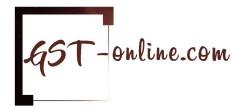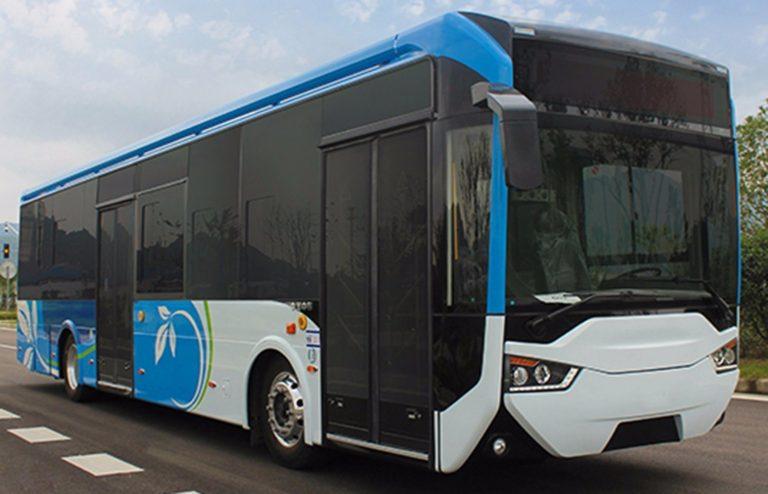There is a common perception that no registered person supplying services through the ecommerce operator will be eligible for the input tax credit. Although in most of the cases rate has been prescribed for without input tax credit but in case of passenger transportation services rates have been provided at 5% with ITC on service in the same line of business or renting of a motor vehicle or 12% with full ITC.
At the outset, vide entry no. 10 of Notification No. 11/2017-C.T. Rate Dated 28th June 2017 as amended from time to time, it has been provided that a taxable person i.e. bus travel company who is involved in providing taxable services of passenger transportation services (by Air-conditioned buses) levying tax @ 5% is not eligible to claim any input tax credit other than the credit of input service in the same line of business i.e. service procured from another service provider of transporting passengers in a motor vehicle or renting of a motor vehicle.
Further, vide notification no. 17/2017 C.T. (Rate) Dated 28th June 2017 as amended vide 17/2021-C.T. Rate Dated 18th November 2021 provides that ecommerce operators shall be liable to pay tax on services of transportation of passengers by a radio-taxi, motorcab, maxicab, motor cycle, omnibus or any other motor vehicle.
Although tax liability on such services provided through e-commerce operators would be paid by the e-commerce operator but the question arises about the availability of Input Tax Credit to the actual service provider in such cases.
Let’s take a hypothetical question-Mr A runs a Bus Travel Agency and has taken A/C buses on rent. He pays GST on the rental amount being paid to the bus owners and till, 31st December 2021 he will be discharging the liability by availing input tax credit of such GST Paid by him to the bus owners. Now from 1st January 2022, tax would be paid by E-Commerce operator on the booking made through such e-commerce operator and for the bookings made at the counter or his own webportal, tax would be paid by the bus operator.
The question arises whether the bus service provider would be eligible to claim entire input tax credit on the rent paid by him.
Part-1-Whether the supplier in case of supplies made through the e-commerce operator is the person who has made the supplies or the e-commerce operator who is liable to pay the tax
Provision of Section 9(5) of the CGST Act, 2017 is being reproduce hereinbelow for ready reference-
(5) The Government may, on the recommendations of the Council, by notification, specify categories of services the tax on intra-State supplies of which shall be paid by the electronic commerce operator if such services are supplied through it, and all the provisions of this Act shall apply to such electronic commerce operator as if he is the supplier liable for paying the tax in relation to the supply of such services:
Therefore, the section provides that the tax shall be paid by the electronic commerce operator and all the provisions of this Act shall apply to such electronic commerce operator as if he is the supplier liable for paying the tax in relation to the supply of such services.
The true scope of Section 9(5) can be best understood with reference to Section 9(3) of the CGST Act, 2017 which provides that
(3) The Government may, on the recommendations of the Council, by notification, specify categories of supply of goods or services or both, the tax on which shall be paid on reverse charge basis by the recipient of such goods or services or both and all the provisions of this Act shall apply to such recipient as if he is the person liable for paying the tax in relation to the supply of such goods or services or both.
The scope of Section 9(3) provides that the tax on reverse charge basis shall be paid by the recipient and all the all the provisions of this Act shall apply to such recipient as if he is the person liable for paying the tax in relation to the supply of such goods or services or both.
The reason for reproducing the Section 9(3) against 9(5) of CGST Act, 2017 is that the liability to pay tax in both the cases is not on the supplier who is making the supply of goods or services or both but on the recipient or the electronic commerce operator respectively. However, at the same time, statute has not deemed the recipient or e-commerce operator to be supplier or services but only the person who is liable to pay tax in respect of such services. Therefore, in both the cases although the person who is actually making the supply of goods or services or both will be treated as supplier of goods but the person liable to pay tax would be the recipient or the electronic commerce operator respectively.
The fact is also pretty much clear from Entry no. 2 and 3 of Notification No. 17/2017-Central Tax (Rate), Dated 28-6-2017 wherein e-commerce operator is only liable to pay tax except when the person supplying such service through electronic commerce operator is liable for registration under sub-section (1) of section 22 of the said Central Goods and Services Tax Act. Therefore, such turnover is liable to be added to the turnover of the taxable person supplying the goods or services through e-commerce operator but the liability to pay tax would be based upon the scope of the relevant entry in the notification.
Conclusion-The supplier in such cases is still the person who has actually made the supply of goods or services or both but the liability to pay tax is on the e-commerce operator through whom the supply has been made.
Further, on similar lines it has been clarified vide circular no. 167/23/2001 dated 17th December 2021 although for restaurant services provided through e-commerce operators but equally applicable in the instant case as well that aggregate turnover of person supplying restaurant service through ECOs shall be computed as defined in section 2(6) of the CGST Act, 2017 and shall include the aggregate value of supplies made by the restaurant through ECOs. Accordingly, for threshold consideration or any other purpose in the Act, the person providing restaurant service through ECO shall account such services in his aggregate turnover.
Part-2-Are the supplies on the which e-commerce operator is liable to pay for the under Section 9(5) are exempted supplies for the person who has actually made the supplies of goods or services or both.
As per the provision of Section 2(47), exempted supply has been defined as a supply which attracts nil rate of tax or which may be wholly exempt from tax under section 11, or under section 6 of the Integrated Goods and Services Tax Act, and includes non-taxable supply.
On a conjoint reading of Section of Section 9(5) read with notification no. 17/2017-C.T.(Rate) Dated 28th June 2017, supplies covered under Section 9(5) just like Section 9(3) are taxable supplies and the only thing is that in case of the supplies covered under Section 9(3) the person liable to pay tax is the recipient and in case of Section 9(5), person liable to pay tax is e-commerce operator. The nutshell is that supplies are taxable supplies.
That Circular no. 167/23/2001 dated 17th December 2021 although for restaurant service providers but equally applicable in the present case makes a stop gap arrangement without holding such supplies as exempt supplies for supplier making these supplies through electronic commerce operator and provides that for the time being registered persons supplying restaurant services through ECOs under section 9(5) will report such supplies of restaurant services made through ECOs in Table 8 of GSTR-1 and Table 3.1 (c) of GSTR-3B.
Part-3-Does the provision of Section 16 restrict the Input Tax Credit to only persons liable to pay tax or it allows credit to all registered persons.
Section 16(1) of the CGST Act, 2017 provides that “Every registered person shall, subject to such conditions and restrictions as may be prescribed and in the manner specified in section 49, be entitled to take credit of input tax..”. Therefore, the scope of the section is much wider than person liable to pay tax and its covers every registered person irrespective of the fact that whether he is liable to pay tax or not. If a person is registered under the statute then irrespective of the fact that whether he is liable to pay tax or not, he will be eligible to claim input tax credit provided he satisfies the conditions laid down under the statute.
Part-4-Is there any example wherein restriction has been imposed although registered person eligible to claim input tax credit under section 16?
The restriction for claim of input tax credit attributable to taxable and exempt supplies is provided under Section 17. Therefore, where Section 16 provides for entitlement input tax credit for registered person but provisions of section 17 restrict is to taxable and exempt supply.
Thus, in case of supplies attracting reverse charge, although such supplies are by nature taxable but at the same time by way of Section 17(3) only for the purpose of reversal of input tax credit, they have bene treated as exempt supplies for the purpose of reversal of Input Tax Credit under Section 17(2) rea with Rule 42 and 43.
Further, services covered under Section 9(5) are not supplies covered under reverse charge as has also been clarified vide circular no. 167/23/2021 dated 17th December 2021 although for restaurant services but applicable in the instant case as well that E Commerce operators are not the recipient of restaurant service supplied through them.
Part-5: Is there any similar restriction to Section 9(3) in case of supplies covered under Section 9(5) under Section 17(3) read with Section 17(2) of CGST Act, 2017?
No, there is no restriction similar to the one for section 9(3) in section 17(3) for the supplies covered under Section 9(5). Further, neither the rate notification considers these supplies as exempt supplies and nor Rule 42/43 treats these supplies as exempt supplies for the purpose of reversal of input tax credit under section 17(2) of CGST Act, 2017.
Conclusion-That a registered person providing passenger services through e-commerce operator would be eligible for ITC on service in the same line of business or renting of a motor vehicle) even after implementation of payment of tax by e-commerce operators.



